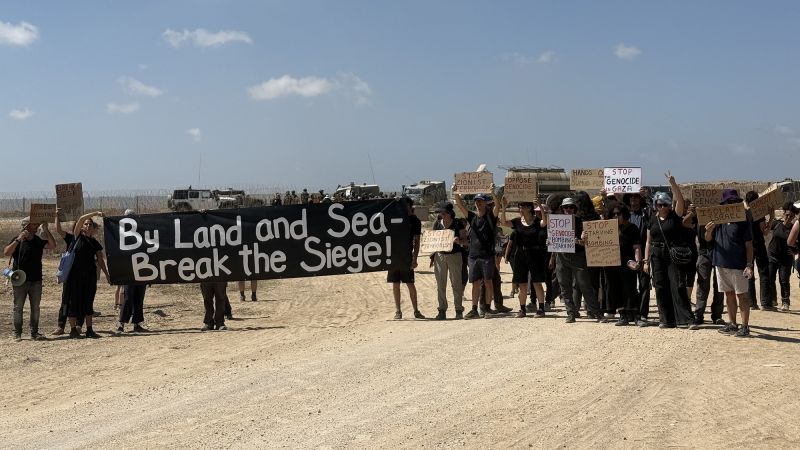Jerusalem —
On a hot Friday morning in September, dozens of Israelis turned up at Gaza’s border fence – not as soldiers, but as dissenters. Their demand: an end to the siege they say is being carried out in their name.
The activists, mostly Jewish Israelis, marched toward the fence, calling on the international community to sanction and isolate their country, to “stop the genocide and end the decades-long Zionist apartheid regime.”
“We are fully aware that the government is not going to stop, so we are here to call on the world to boycott us, as ridiculous as it sounds,” Sapir Sluzker Amran, one of the participants, told CNN.
Almost two years into the war in Gaza, Sluzker Amran represents a minority in Israel, and she is aware of it.
“It’s a shame that we don’t have more people with us today, but I think we need to keep challenging our own society. … They’re in denial, and I think the best way to get out of this denial is to keep shocking them until everyone faces the horrible truth that we are committing genocide.”
In September, an independent UN inquiry concluded for the first time that Israel had committed genocide against Palestinians in Gaza, a finding which the Israeli government has rejected.
Only a short drive away, the extreme distance between the protesters’ view and that of most Israelis is made clear.
In the southern border city of Sderot, which was attacked on October 7, and is frequently the target of rocket fire, a group of Israelis gathered at an observation deck overlooking Gaz
Continue Reading on CNN
This preview shows approximately 15% of the article. Read the full story on the publisher's website to support quality journalism.
